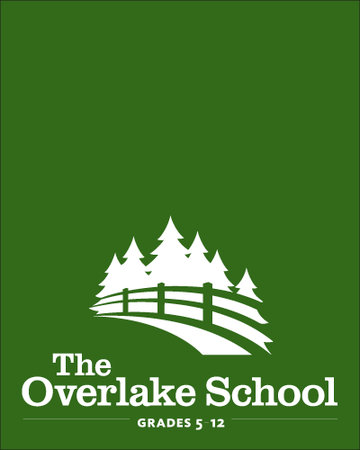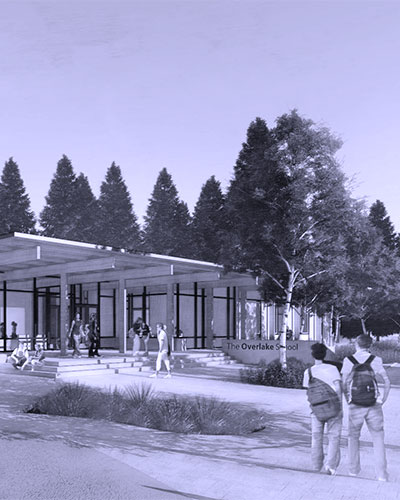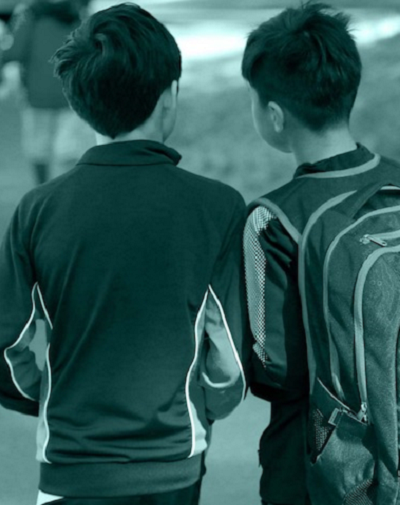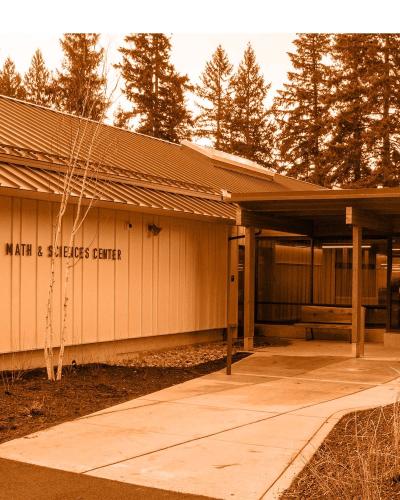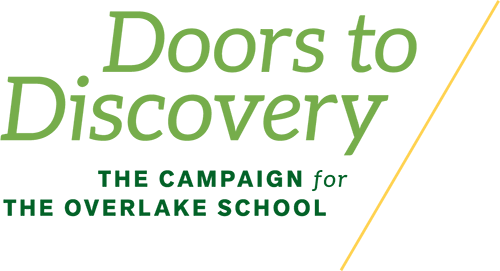The Idea Lab: Bringing Research and Innovation to the Academic Program
The Idea Lab: Bringing Research and Innovation to the Academic Program
By Lisa Orenstein, Science Faculty
Our students will face a world after Overlake that is vastly different from the one they experience now. To prepare them, we must reconsider what constitutes “the basics” of a high school education. Greater emphasis needs to be placed on teaching for understanding and providing students opportunities to grapple with real-world problems in an environment that encourages and supports experimentation.
Knowledge and skill acquisition remain at the core of 21st century competencies, which include:
- Asking critical questions
- Engaging in creative problem solving
- Generating, organizing, evaluating, and interpreting data
- Working collaboratively
- Engaging in iteration
- Communicating verbally and visually
- Displaying empathy
- Acquiring technology and media literacy
The Idea Lab in the new Math & Sciences Center provides an incubator for development of the kind of programming that immerses students in research and innovation. This kind of programming is designed to see students grow as intelligent and effective problem-solvers by drawing from their repertoire of knowledge and skill, and to empower students to work independently and creatively to manage and address new real-world issues on their own.
We want to engage students in cultivating a knowledge and skill set that can be used in new ways to address problems that do not have obvious solutions. Our goal is to bring regular opportunities to Overlake students to formulate their own questions, and then be engaged in creative problem solving to develop purposeful and sustainable solutions. To do this effectively we must consider what this looks like in the context of our school and how to integrate it into an already existing academic and co-curricular program.
Overlake students know the importance of being good “students” in the traditional sense of that word. We are looking to expand the meaning of being an effective student to one that includes the idea of understanding how to produce knowledge rather than merely reproducing it. This will require adapting to a world where the right answer doesn’t exist, where multi-faceted thinking is required, where experimentation, risk-taking, and persistence are needed to develop cogent, meaningful, and unique answers.
The Idea Lab of the new Math & Sciences Center will become the hub of these opportunities. This space can serve to engage students and teachers in experimental and hands-on work outside the confines of the traditional classroom in a variety of ways. Some examples include:
- Resurrecting the idea of the “mini-course,” a condensed time frame to explore and acquire new skills and apply to real-world problems
- Offering quarter or semester-long projects that are spinoffs from the work done in classroom studies
- Creating adjunct lab projects for already existing courses that extend investigations beyond what can be managed in a traditional classroom setting
What might some of these experiences look like? Project-oriented courses could be capstone research experiences in science, or engineering project work done in conjunction with science, computer science, and service learning, or projects that engage students in the statistical analysis of relevant data to address pressing questions in areas as diverse as global health and politics. Each unique in their focus, yet all directed toward the same goal: to enable students to transfer their classroom knowledge to intelligently, effectively, and independently confront and tackle new and unanticipated challenges.
Contact
Brisen Brady
Director of Development
bbrady@overlake.org
425-602-7054
